A current fad amongst those who have an uneasy feeling that there may be something to Christianity but are too lazy to get up early to attend church on Sunday is to protest that they are “spiritual not religious”.
To the modern mind – or the muddled randomly firing synapses that have replaced the mind – spirituality is inherently superior to religion. Religion is just too physical: you are expected to present yourself bodily in church, the Eucharist is physical, the liturgy demands activity, “present your bodies as a living sacrifice“, and so on. All a regurgitation of Gnosticism where the immaterial is good, the material bad, secret knowledge or spirituality rather than Jesus is our salvation and ignorance is our problem, not sin. Contemporary Anglicans who, in their heart of hearts, have never liked the idea that not only did God choose to inhabit a body but physically brought it back to life and then, horror of horrors, continued to inhabit it find all this quite appealing.
Latching on to this fad and go one better – or worse, really – the Diocese of Ottawa is becoming “spiritual but not Christian”. “How is this different from what has been going on for the last 30 years?” you may be thinking. Up until recently, clergy in the Anglican Church of Canada have been too shy to admit their heterodoxies, preferring to continue reciting the Creeds while changing the meaning of the words in their heads. Now they are out of the closet.
The Diocese of Ottawa has appointed a spiritual teacher who is not a Christian. He, unlike many of our bishops, doesn’t even pretend to be a Christian.
From here:
Algonquin spiritual teacher in residence appointed at Ottawa cathedral.
In a historic appointment, local Indigenous spiritual leader Albert Dumont has been named Algonquin Spiritual Teacher in Residence for a two-year term at the cathedral. During his term, Dumont will help educate members of the cathedral community on traditional Indigenous spirituality, while deepening the relationship between the Diocese of Ottawa and the Algonquin nation upon whose unceded territory most of the diocese sits.Dumont’s appointment marks the first time that a non-Christian Indigenous teacher in residence has been assigned to a cathedral of the Anglican Church of Canada.
[…..]
The Very Rev. Shane Parker, dean of Christ Church Cathedral, appointed Dumont as Algonquin spiritual teacher in residence. The appointment came with the full support of Bishop John Chapman, as well as Kitigan Zibi Anishinabeg Chief Jean Guy Whiteduck.
Both Dumont and Parker highlighted the Calls to Action of the Truth and Reconciliation Commission (TRC) as a crucial impetus for the appointment. The recommendations included recognition of the equal value of Indigenous spirituality.
“Albert is not a Christian,” Parker said. “He is an Algonquin man who has been shaped by the spirituality of his community, of his ancestors, throughout his life. I feel that having him in the cathedral will help us to understand Algonquin spirituality in particular, but [also] Indigenous spirituality in the context of a relationship, because I believe at the heart of reconciliation is developing a meaningful relationship between non-Indigenous and Indigenous people.
“Having Albert at cathedral signals our mutual concern … to learn and to share from one another’s spiritual traditions, and recognize them as equivalent.”


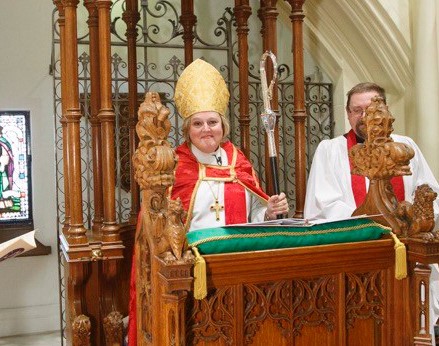
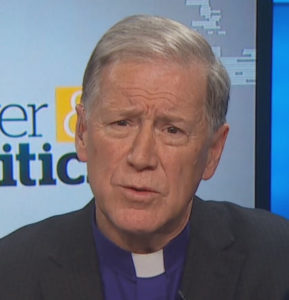 ARCHBISHOP FRED HILTZ HOSTS REGIONAL PRIMATES’ MEETING IN TORONTO, ONTARIO, CANADA
ARCHBISHOP FRED HILTZ HOSTS REGIONAL PRIMATES’ MEETING IN TORONTO, ONTARIO, CANADA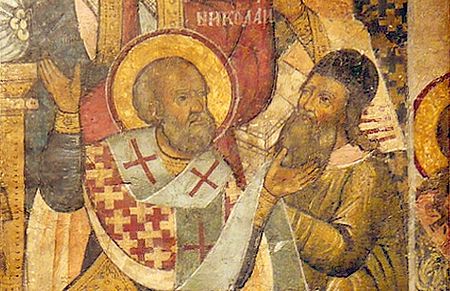
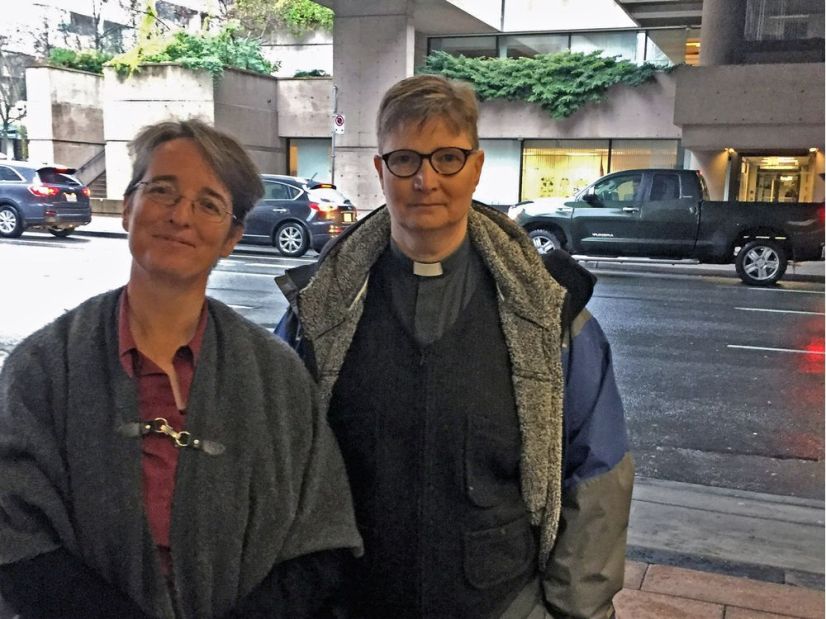
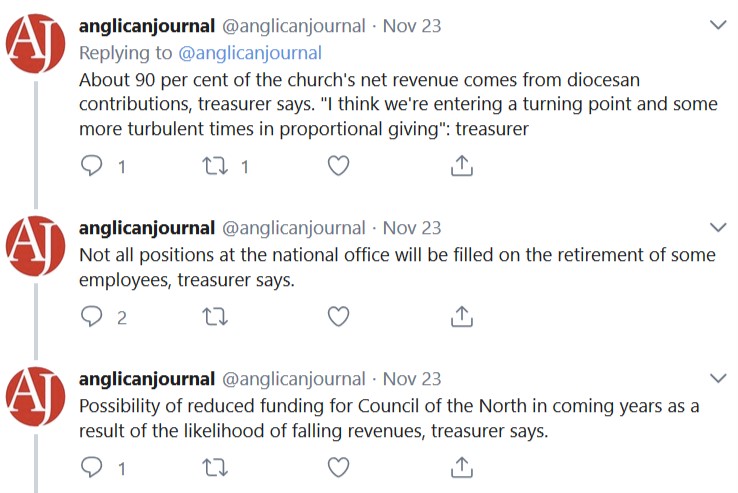



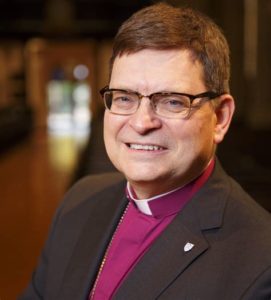 On this Trans Day of Remembrance, as Bishops of the Diocese of Toronto, we wish to acknowledge the dignity and inherent worth of all people, including every transgender person, and our opposition to all prejudice, discrimination, or actions that deny the full personhood of any individual based on their gender identity.
On this Trans Day of Remembrance, as Bishops of the Diocese of Toronto, we wish to acknowledge the dignity and inherent worth of all people, including every transgender person, and our opposition to all prejudice, discrimination, or actions that deny the full personhood of any individual based on their gender identity.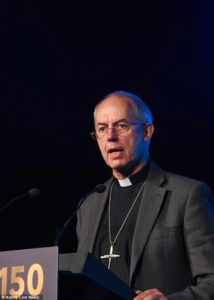 God should not be referred to using a gender because ‘our father’ was not male or female, according to the Archbishop of Canterbury.
God should not be referred to using a gender because ‘our father’ was not male or female, according to the Archbishop of Canterbury.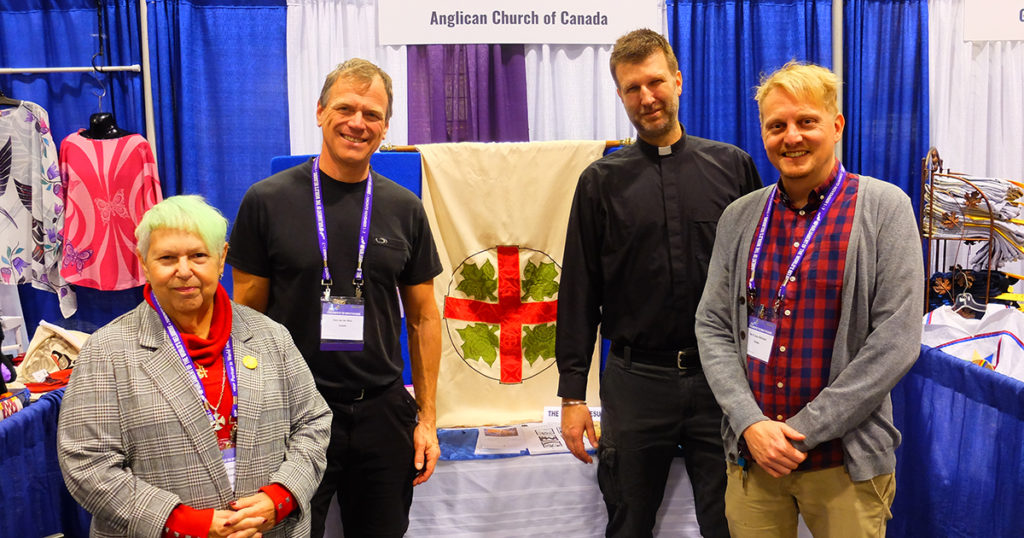 The largest and oldest interfaith gathering in the world, this year’s parliament took place from Nov. 1-7 at the Metro Toronto Convention Centre. The Toronto-based event brought together an estimated 10,000 people from 80 countries, spanning more than 200 different religions, faiths, and belief systems, for a week of programs, discussions, and interactive experiences.
The largest and oldest interfaith gathering in the world, this year’s parliament took place from Nov. 1-7 at the Metro Toronto Convention Centre. The Toronto-based event brought together an estimated 10,000 people from 80 countries, spanning more than 200 different religions, faiths, and belief systems, for a week of programs, discussions, and interactive experiences.